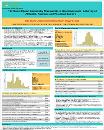The Role of Qatar Community Pharmacists in Depression care: A Survey of Attitudes, Practices and Perceived Barriers
| Author | Shami, Rula |
| Author | Alam, Mohammed Fasihul |
| Author | El Hajj, Maguy |
| Available date | 2020-10-26T08:49:54Z |
| Publication Date | 2020 |
| Publication Name | Qatar University Annual Research an Exhibition 2020 (quarfe) |
| Citation | Shami R., Alam M.F., ElHajj M., " The Role of Qatar Community Pharmacists in Depression care: A Survey of Attitudes, Practices and Perceived Barriers", Qatar University Annual Research Forum and Exhibition (QUARFE 2020), Doha, 2020, https://doi.org/10.29117/quarfe.2020.0160 |
| Abstract | Background: Negative attitudes and stigma to mental health constitute major barriers to healthcare provision and access to treatment for patients with depression across the globe. Community pharmacists are among the most accessible healthcare providers who may play a significant role in depression care. This study aims to describe current practices, attitudes and perceived barriers of community pharmacists towards the provision of depression care, and investigates how pharmacists' attitudes, along with several sociodemographic and professional characteristics, are associated with these practices. Methods: A cross-sectional online survey targeting all practicing community pharmacists in Qatar using an adapted survey instrument. Responses were measured on a 5-point-Likert scale. Study outcomes were scores of attitudes towards depression, scores of self-reported depression care practices and perceived barriers for depression care. Descriptive univariate and bivariate analyses of study outcomes were conducted, along with a multivariate regression to investigate how pharmacists' characteristics and attitudes affect their practice. Results: Three hundred fifty-eight pharmacists answered the survey, making a response rate of 39%. Pharmacists' attitudes to depression were moderately positive (mean score=3.41, SD= 0.26). However, the extent of pharmacists' involvement in depression care was very low (mean score=2.64, SD= 0.94). Three major barriers were the lack of access to patients' medical records (83.21%), lack of patients' insight on major depression and the importance of treatment (81.85%) and the lack of needed knowledge and training on mental health (79.63%). Female pharmacists were significantly less involved in depression care compared to male pharmacists (p= 0.006). Depression practice score increased with an increasing score of attitudes (p =0.001) and decreased with the number of years since the last pharmacy degree graduation (p=0.02). The presence of a private area for counselling patients was associated with higher scores of practice (p=0.03). Conclusion: Pharmacists' moderately positive attitudes towards depression and its care were not reflected in their current practices. Findings from the study imply the need for actions and training programs for pharmacists to improve their attitudes and practices towards depression care |
| Language | en |
| Publisher | Qatar University Press |
| Subject | Community Pharmacist Depression Attitude Practice Barrier. |
| Type | Poster |
Files in this item
This item appears in the following Collection(s)
-
Theme 2: Population, Health & Wellness [118 items ]


